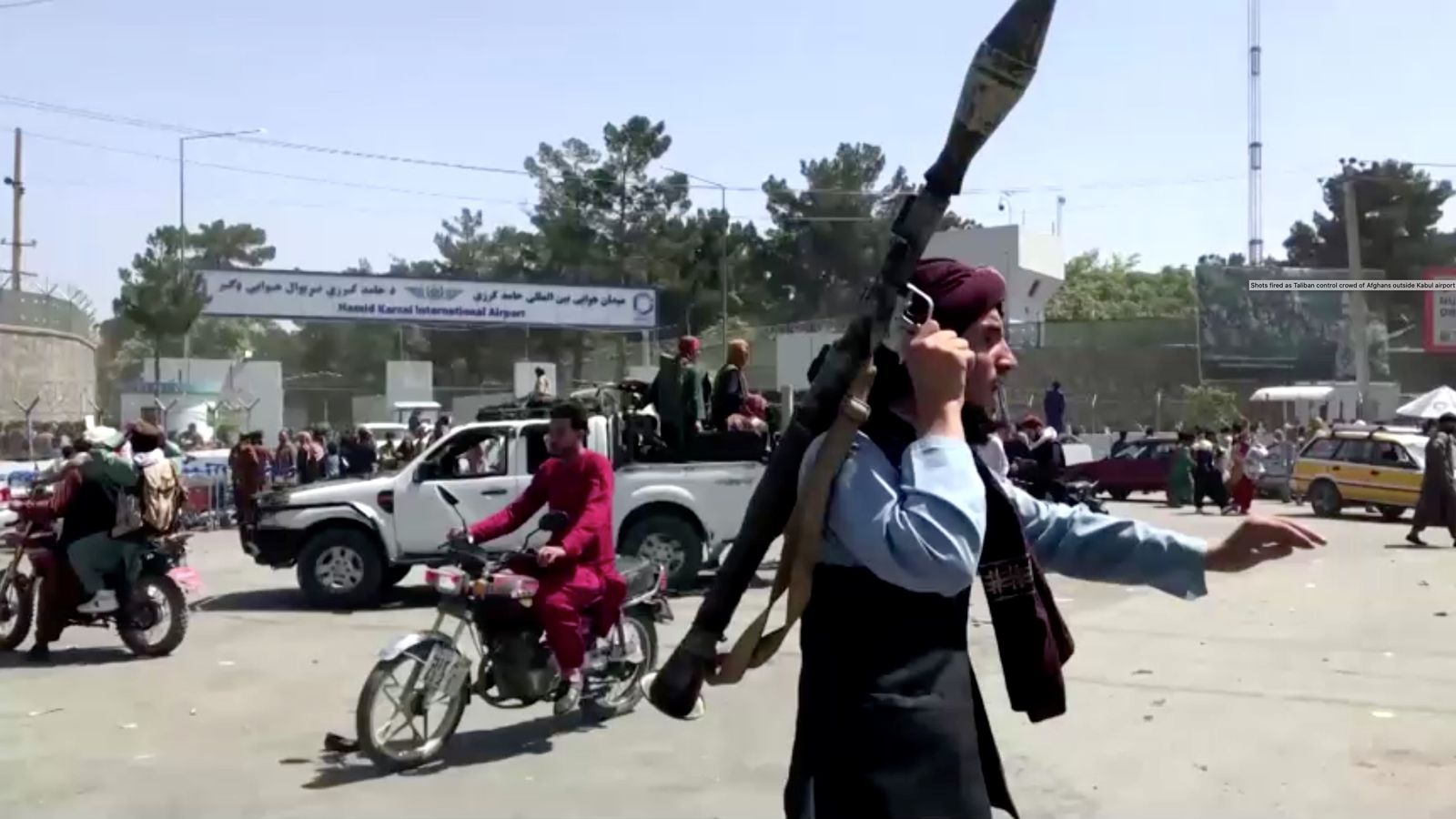In the days before the US-led invasion of Afghanistan in 2001, a group of British defence and security officials took a top-secret trip to Moscow.
The plan was to ask their Russian counterparts for advice on operating in the country given the former Soviet Union’s doomed Afghan intervention that ended in defeat in 1989.
The response was brutally prophetic.
One person who was at the meeting recalled: “When the Russians stopped laughing they told us: ‘You will make the same bad choice we did, you will go in, you will lose, many of you will die and then you’ll be forced to retreat, which will be good for us. How can we help?'”
Twenty years on as the US-led intervention in Afghanistan stumbles through its final, chaotic days and the Taliban take charge, events could hardly have played out in a better way for Russia.
President Vladimir Putin’s government has one of the final few embassies still fully functioning in Kabul and has developed close ties with the Taliban, including allegedly helping secretly to fund and equip their fight against US and British forces.
Russia has denied such claims.
In addition, images of desperate Afghans clinging to the undercarriage of departing US aircraft as Taliban fighters patrol the streets of Kabul are even starting to make Moscow’s past failures in Afghanistan look marginally less catastrophic by comparison.
At least the then Soviet-backed government in the Afghan capital clung to power for three years following the Russian withdrawal.
The Western-supported administration of Ashraf Ghani barely lasted three hours once the Taliban reached the gates of Kabul, with the president and his closest aides fleeing to exile without putting up any kind of resistance.
Britain’s Foreign Secretary Dominic Raab claimed on Tuesday that no one had predicted the speed of the Taliban victory and corresponding collapse of the Afghan government. “No one saw this coming. Of course, we would have taken action if we had.”
Please use Chrome browser for a more accessible video player
Pressed by Sky News’s Kay Burley on whether the UK’s defence and security chiefs should have known what might unfold given their past 20 years of involvement in Afghanistan, Mr Raab said: “It’s easy to say that with the benefit of hindsight but the truth is you’re always measuring a very fluid constellation matrix of risk factors and that’s the reality.”
Perhaps so. But it would be fascinating to know if Russia and other countries in the region with stakes in Afghanistan, namely Pakistan, China and Iran, were genuinely as clueless.
They all stand to gain from the US and British retreat and the Taliban’s return to power.
Moscow and Beijing have also benefitted from the past two decades of watching Washington, London and other NATO allies distracted by the failed effort to turn Afghanistan into a democracy, with all the blood and treasure expended, as Russia and China grew their respective militaries and spread their global influence.
It is one of the reasons US President Joe Biden gave on Monday night when he belatedly addressed the consequences of his decision to withdraw US forces from Afghanistan, handing victory to the Taliban.
“Our true strategic competitors China and Russia would love nothing more than the United States to continue to funnel billions of dollars of resources into stabilising Afghanistan,” President Biden said.
But that has already happened – for the past 20 years.
By leaving Afghanistan in the careless way that the United States has chosen, the new risk is to exacerbate further the damage inflicted on Western powers by their past mistakes.
It could ultimately undermine President Biden’s own ambitions for the world’s democracies to stand up and push back against the existential challenge to global rules and human rights posed by China, Russia and other authoritarian powers.
The UK’s desire to be a “force for good” in the world, however well intentioned, also rings increasingly hollow as Afghanistan slips back under Taliban rule.






















